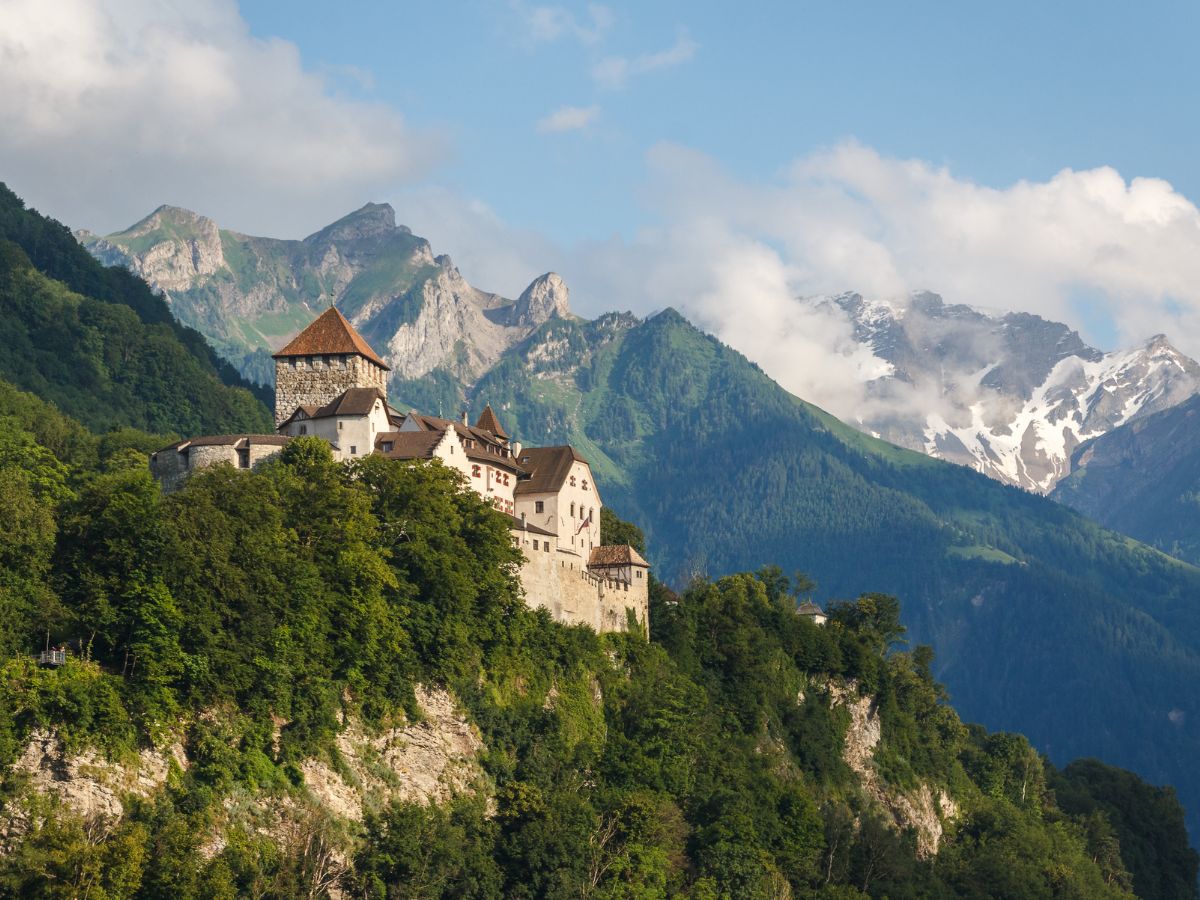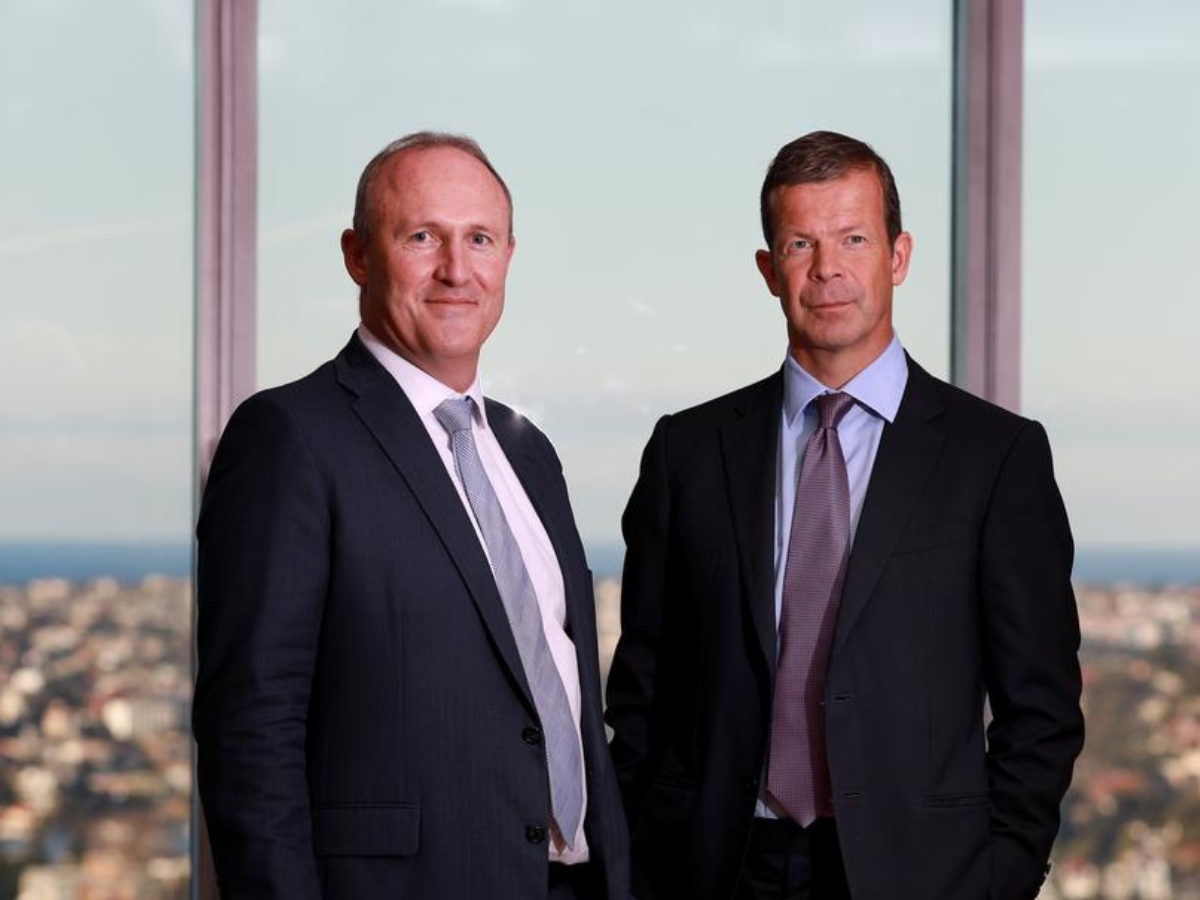Article written by Hans van Leeuwen published in The Australian Financial Review April 22, 2025.
London | Most European royal families are wealthy – they own property, farms, castles, art, businesses, you name it – but most seem content to limit themselves largely to ceremonial and charitable work. Not, though, the royal family of Liechtenstein.
It might be the monarchy one of the world’s smallest states, but it is surely one of the most entrepreneurial – despite, or perhaps because of, a turbulent 20th century of Nazi intimidation and communist expropriation.
LGT Group, the Liechtenstein princely family’s private bank and fund manager, stewards more than $650 billion of assets for banks, insurers, pension funds, family offices and rich folk. And it is piloted from within by the augustly titled Prince Max von und zu Liechtenstein, whose CV includes a Harvard MBA and a decade doing private equity deals on Wall Street.
Since he took over the family firm in 2006, Prince Max – the second son of the principality’s octogenarian monarch, Hans-Adam II – has steered the group into a sprawling 16-country enterprise spanning Europe, North America, the Middle East, Asia, and now Australia.
Australians may have been surprised when Liechtenstein – population 41,000, nominal GDP roughly $12 billion – emerged four years ago as the buyer of ex-UBS outfit Crestone, a $34 billion Aussie wealth manager. But LGT has now doubled down: last November, it snapped up CBA’s personal advice business, with its 500 clients and their $5 billion of assets.
With the Liechtenstein royal flag now seemingly planted permanently Down Under, AFR Weekend was curious: how was a centuries-old hereditary monarchy from a landlocked Alpine valley able to build such a behemoth? And is there any secret sauce that a princeling brings to the intricacies of international investing, or to the practicalities of procuring a $600 million-plus annual profit?
The obvious way to find out is to ask Prince Max himself. But like all royals on whose door this correspondent has ever knocked, getting an audience with His Serene Highness is not necessarily the easiest of feats.
Over several months, a lunch proposal was initially accepted but then parlayed down to an hour-long interview. Ultimately, the planned interview-plus-photographs ended up as a Teams call.
But Prince Max turned out to be an affable man in his mid-50s, wearing a suit but no tie, who had just arrived at LGT’s Vaduz office on his electric bike. Our ice-breaker chat was about how he and his wife had been caught up in the Heathrow Airport meltdown – he’s evidently a commercial flyer, not a private jetsetter.
“Liechtenstein is the only country, certainly that I’m aware of, that was formed through M&A.”
LGT’s story began when Prince Max’s great-great-uncle, Prince Franz I, acquired a controlling stake in the modestly sized and relatively recently formed Bank of Liechtenstein Aktiengesellschaft in 1930, rescuing it from the grip of the Great Depression.
“I always say that this was a bit of an impact investment at the time,” Prince Max says. “I’m sure there was a sense that one could make out of this bank a more successful institution over time. But it was also done with a motivation to support the financial services sector in Liechtenstein, to make sure that this little bank didn’t go bust.”
It was some time, however, before the family developed any serious ambitions for this asset. Perhaps the ensuing few decades were a bit, well, distracting.
The 900-year-old dynasty had weathered plenty of storms before, as imperial fortunes rose and fell, and military campaigns criss-crossed central Europe. Their skill in playing the geopolitical game reached its apogee in 1719, when the family got the Holy Roman Emperor’s imprimatur to merge two recently purchased tracts of land and create the principality of Liechtenstein. This freed the family, which was then largely based in a pair of palaces near Vienna, from any obligation to a feudal overlord.
“Liechtenstein is the only country, certainly that I’m aware of, that was formed through M&A,” Prince Max jokes, before suggesting more seriously that it “also had an impact on the broader purpose of the family – it made us look at things in a more holistic way”.
But the mid-20th century was particularly challenging. Prince Max’s grandfather, Prince Franz Joseph II, took the throne from his childless great-uncle in 1938. Nazi Germany had recently annexed the land that hosted their Czech and Austrian properties, so the family took up permanent residence in their principality for the first time.

Vaduz Castle, Liechtenstein
Liechtenstein remained neutral during the war, avoiding Nazi occupation. But after the war, the communist regime in Czechoslovakia certainly wasn’t going to hand any of their property back.
From this nadir, the family has rebuilt. The bank outgrew its role as a financier of the local economy, and by the 1980s, Prince Hans-Adam II was starting to think big.
“My father was always a bit of a forward-leaning character, who saw the glass more half-full than half-empty. He had the conviction that the biggest risk you can take is not to take any risks,” Prince Max says.
“He saw a bigger potential for LGT, and when he brought in a more internationally experienced and ambitious new leadership, essentially in the mid-80s, it started to grow from what was at the time a 60-person organisation into something more substantial.”
His father and grandfather were more political creatures than entrepreneurs, so the expansion “was not without challenges”, he admits. “I would say, the longer we have been at it, the better we have got at it.”
Prince Hans-Adam II is the head of state, so he has to remain at arm’s length from LGT. Initially his brother, Prince Philipp Erasmus, ran LGT as it started to expand internationally, before handing over to Prince Max in 2006.
The young prince had first discovered a taste for business during a series of internships during high school and university, including six months at LGT. But at 19 he was keen to “leave Liechtenstein and go as far away as possible, to see a little bit more of the world”.
He revelled in the world of New York private equity, but eventually began to get pangs. First, he saw that while private equity players place bets and guide management teams, they don’t roll up their sleeves and actually create the value. And second, he got nostalgic for his tiny homeland: “I came to the conclusion that Liechtenstein is not such a bad place.” The solution to these yearnings came his way at the tender age of 36, with the chance to run LGT.
Being a royal is clearly good for career advancement, but Prince Max says it also helps LGT, both philosophically and practically. At a philosophical level, a family that is trying to tend its own wealth across the generations is almost genetically wired to take a “comprehensive and long-term perspective”.
And royals, he says, are also hardwired to consider wider societal needs. “Of course, you need to focus on the clients, probably first and foremost. But it’s also incredibly important that things work out well for the other stakeholders, including employees, the broader society and so on.”
At a practical level, if you’re trying to court high net worth individuals, particularly in Asia and the Middle East, your title is a bit of a calling card. Early on in his tenure, he says, one of his Asia-based relationship managers told him to ‘bring me more princes and princesses’. “So I looked around in the family, to see who else could be really helpful.”
He was fortunate that, unlike the British royal family under King Charles III, Liechtenstein is pretty liberal with the princely title. So his uncle Prince Hubertus is on the board, and Princess Adelheid Coudenhove-Kalergi is on the board of the British entity, and doubles up as the country’s honorary consul to the UK.
But having a powerful brand – in this case one enhanced by royal cachet – is only one of three attributes a private bank requires, Prince Max says. The other two are the quality of the relationship managers, and the performance and strength of the platform.
This latter trait is why he is giving a lot of thought to AI, and the role it has to play in asset management. He has not previously been an enthusiastic early mover on new technology, but this is different: the AI transformation is “so much faster and so much more incremental” than previous technological revolutions in the industry.
“For us, the strategic conviction is that you need to get your data in order. That’s key, and then you need to have the entire organisation just becoming much more alert and faster to gradually build out the platform … you want to be seen as not becoming a dinosaur.”
That could sound like a tall order for a 900-year-old monarchy. But Prince Max says his family is up to the task, drawing on its own Liechtenstein heritage.
“We are this tiny, little mountain country where everybody knows everybody, and where things happen very much eye-to-eye, and in a very direct way. We don’t like hierarchy. The best argument should win,” he says.
This arguably makes Liechtenstein a good fit for Australia. When Prince Max first met the Crestone management team, he found them “very direct, open, straight, eye-to-eye, easy, good energy”.

LGT Crestone CEO Mike Chisholm and Prince Max
But the other thing about being a prince and a banker from Liechtenstein is that it’s hard to give yourself regal airs when your country is less than half the size of Sydney’s Sutherland Shire.
“If you’re from such a small country, then if you take yourself too seriously basically your neighbours immediately hit you on your head,” he says.
“So the winning characteristic is more to come in as the underdog, make a little bit of fun about yourself, but then actually surprise everybody that you’re pushing a little harder, that you’re a little bit stronger than what people expect.”
They say in finance that the past is no predictor of future performance. But from a prince whose forebears protected Liechtenstein’s independence from countless scheming emperors and autocrats, history could well be on his side.
